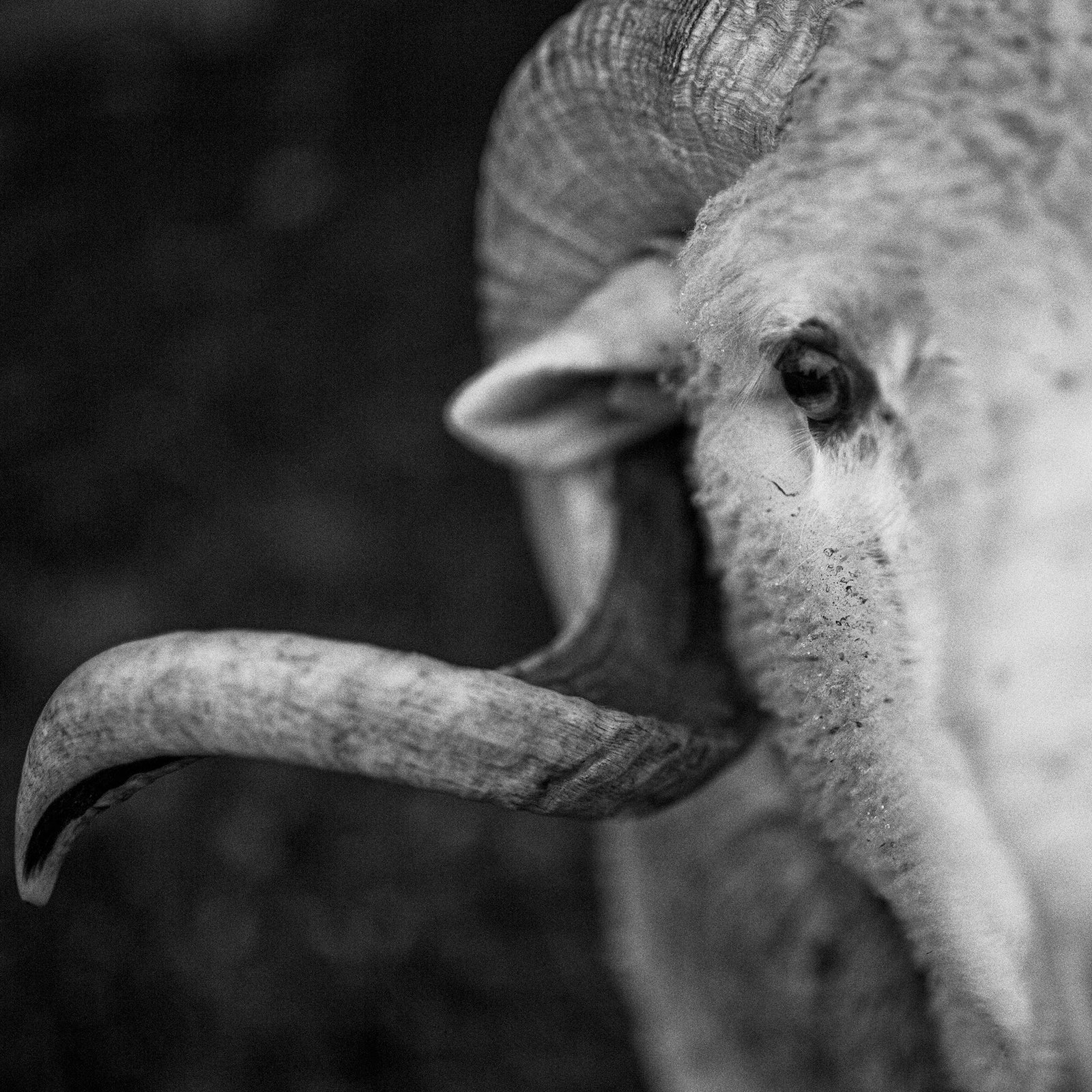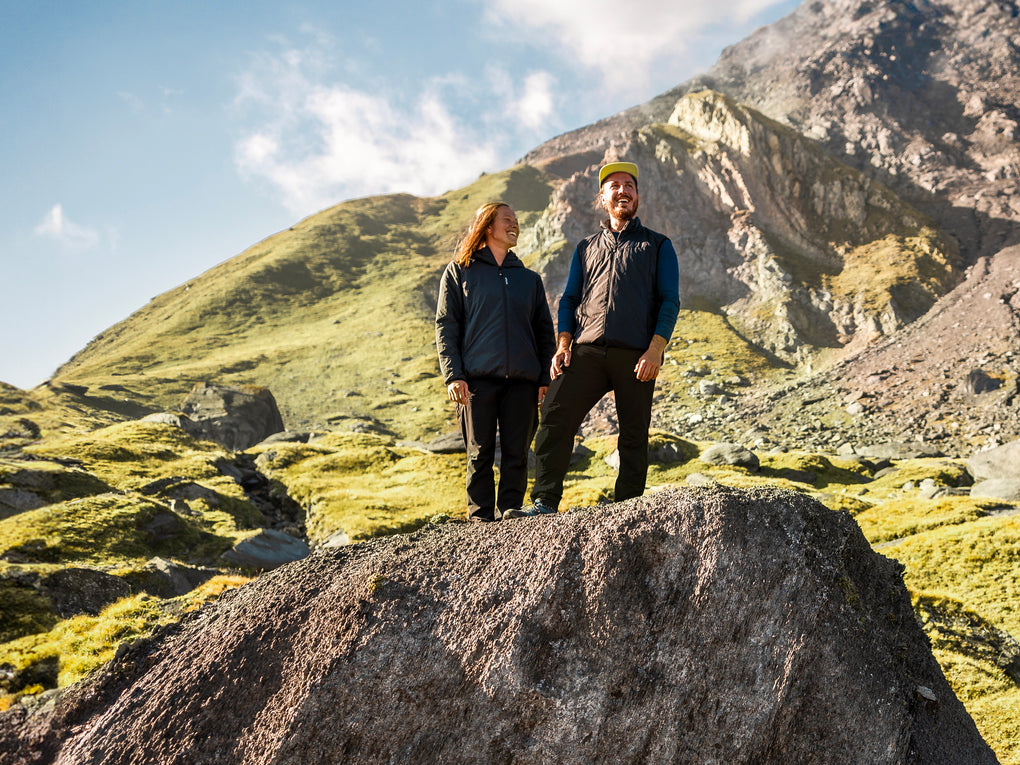Sustainability of Merino Wool

Sustainability of Merino Wool
The undeniable functional and ecological advantages of merino wool are accompanied by a number of ecological drawbacks and inhumane methods.
While we can address many of these drawbacks through the use of merino wool from controlled organic animal husbandry and environmentally friendly processing and dyeing methods, there are still some central challenges, particularly regarding the poor carbon footprint of merino wool and the long transport distances.
***
Merino wool has a low energy and water consumption
The production of a wool T-shirt consumes around 20% less energy than a comparable synthetic T-shirt and 70% less water than a cotton T-shirt. In today's era of widespread energy and water scarcity, this is highly valuable.
Merino wool is easy to dye
Merino wool is relatively easy to dye, reducing chemical and energy usage. The ROTAUF Bio Merino series is dyed according to the strict Global Organic Textile Standard (GOTS), ensuring it remains free of harmful substances after dyeing.
Merino wool is biodegradable
As a natural material, wool is 100% biodegradable, theoretically not contributing to the environmental microplastic pollution. However, in practice, merino wool is often heavily chemically treated and mixed with synthetic fibers, blurring the line of its natural origin.
Merino wool is recyclable
Wool is recyclable and can be used for new yarns or filling materials. In Europe, the Italian textile district of Prato is particularly known for recycling wool products.
Merino wool requires less frequent washing
As described above in the functional properties, merino wool is self-cleaning and odor-neutralizing. Therefore, merino clothing requires less frequent washing than conventional clothing, saving water and energy.
Merino wool is a renewable resource
Unlike petroleum-based synthetic fibers like polyester or polyamide, merino wool is a renewable resource. All it takes for the "production" of merino wool is a sheep, fresh air, water, and grass. Quite simple.
However, these positive aspects are often counteracted by several negatives. Let's take a closer look:
Merino wool has a poor carbon footprint
Compared to other textile raw materials, merino wool has a relatively poor carbon footprint. A sheep produces nearly 5 kilograms of methane per year, which, over 100 years, is 28 times as impactful on climate change as CO2. The production of merino wool thus results in double the greenhouse gas emissions compared to synthetic fiber production.
Merino wool is often treated with harmful chemicals
Natural wool felts and shrinks when washed in a washing machine. Therefore, merino wool must undergo special treatment to make it machine washable. The wool is typically subjected to a process called "superwash," which involves etching the natural scales with chlorine compounds to prevent felting. However, these chlorine compounds are highly explosive and leave residues of dangerous AOX compounds in wastewater. AOX refers to a group of many chemical compounds that are harmful to humans and the environment.
Since the introduction of the Bio Merino series in 2017, ROTAUF has avoided superwash treatment with chlorine and plastic coating for these reasons. Instead, we use a gentle process called EXP. This allows our wool to be machine washable, albeit only at 30°C and with a good wool detergent.
Mulesing and Sheep Dipping
Certain merino sheep breeds are bred to have as many skin folds as possible to maximize wool production per sheep. Blowfly maggots can infest these skin folds, especially around the sheep's tail. To prevent this infestation, the skin folds around the sheep's tail are often removed without pain relief, a cruel practice known as mulesing, primarily practiced in Australia. Mulesing has been banned in New Zealand since 2018, and South America is considered mulesing-free because the pesky blowflies are absent there.
Another common practice to prevent parasite infestation in sheep is "sheep dipping," where sheep are immersed in a tank of pesticides/disinfectants or driven through pesticide baths.
To ensure that the sheep providing wool for ROTAUF clothing live under humane conditions and without cruel treatments, we use merino wool from controlled organic animal husbandry (kbT). This standard follows European guidelines for organic farming and prohibits both mulesing and sheep dipping.
Merino wool requires land and can lead to soil degradation
In many regions of the world, forests are cleared to create pasture land for animals. If there are too many animals per available pasture area, overgrazing can lead to soil degradation, erosion, and loss of biodiversity.
Here too, the organic standard provides a remedy by regulating the size and regeneration of pasture areas.
Merino wool is often blended with synthetic fibers
Due to the relatively low strength of merino fibers and to facilitate care, they are often blended with synthetic fibers. While this can positively impact the durability and lifespan of merino textiles, it contributes to environmental microplastic pollution and prevents the textiles from being biodegradable or recyclable.
Merino wool often travels long distances
As previously described, merino wool typically comes from afar: Australia, New Zealand, South Africa, and Argentina are the world's largest merino exporters. With various processing stages, this can quickly accumulate to 40,000 transport kilometers per T-shirt.
Due to the regional processing of merino wool (knitting, dyeing, sewing in Switzerland), these values are significantly lower at ROTAUF, but even our merino silk clothing accumulates around 10,000 transport kilometers over the entire value chain. To shorten this distance, we are always looking for more local merino alternatives. With Swiss merino wool and Spanish merino wool, we now offer two such alternatives in selected products, and we hope to further increase the proportion of local merino wool in the coming years.







Leave a comment